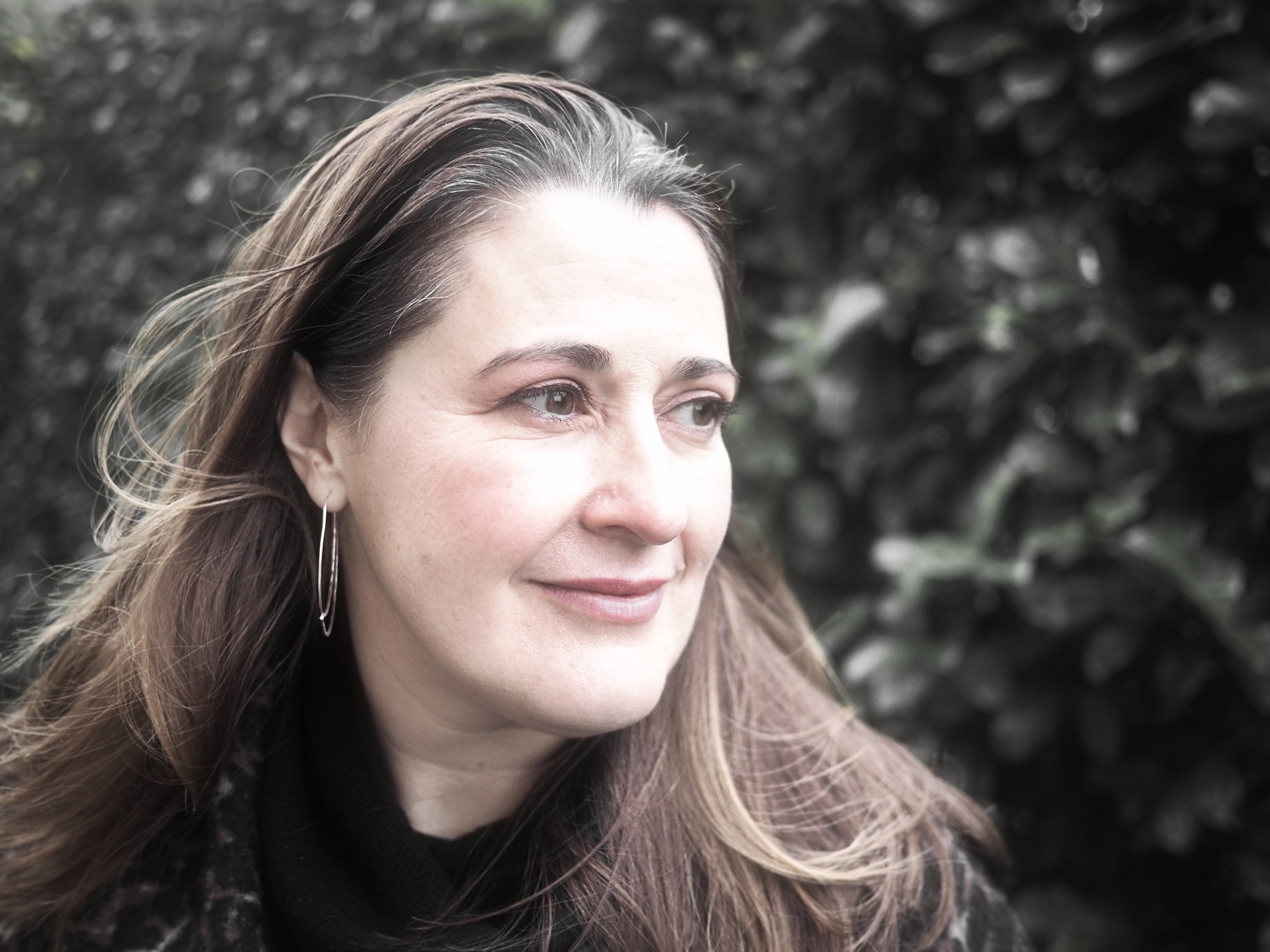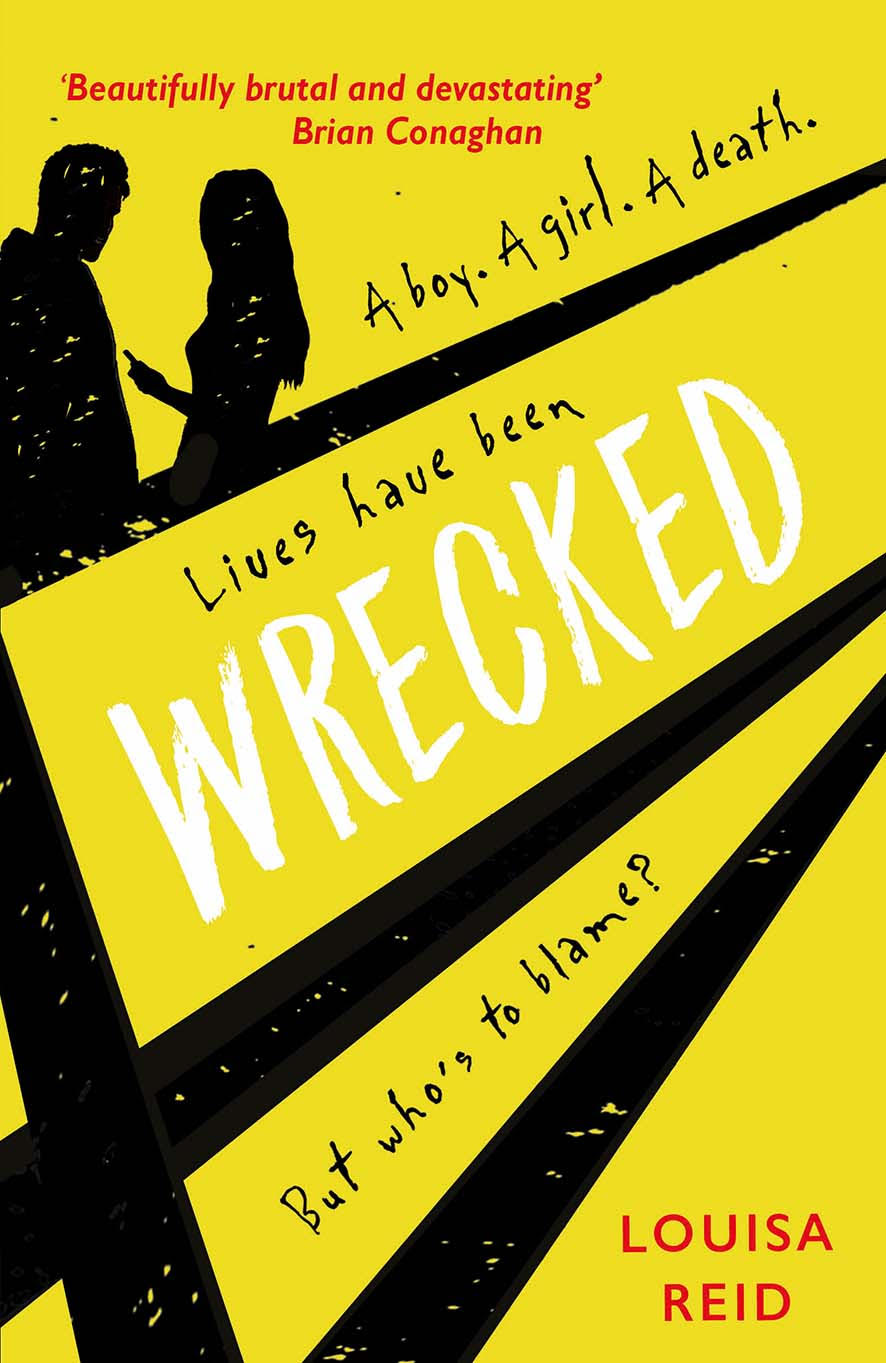 Louisa Reid is the author of four critically acclaimed novels for young adults and has been shortlisted for numerous awards. Gloves Off, which published to critical acclaim in 2019, is a stunning verse novel that, quite literally, pulls no punches in depicting one girl’s transformative journey from victim to victor. Louisa has followed this success with Wrecked, another powerful novel-in-verse exploring themes of truth, betrayal and toxic relationships.
Louisa Reid is the author of four critically acclaimed novels for young adults and has been shortlisted for numerous awards. Gloves Off, which published to critical acclaim in 2019, is a stunning verse novel that, quite literally, pulls no punches in depicting one girl’s transformative journey from victim to victor. Louisa has followed this success with Wrecked, another powerful novel-in-verse exploring themes of truth, betrayal and toxic relationships.
We were lucky enough to get the opportunity to ask author Louisa Reid about the tough topics she presented to her YA readers in Wrecked.
 One of the things we love most about Wrecked is its authenticity - from Joe’s powerfully engaging voice, to the representation of friendship, relationships and varied family circumstances. Was there a “eureka!” moment that sparked the idea?
One of the things we love most about Wrecked is its authenticity - from Joe’s powerfully engaging voice, to the representation of friendship, relationships and varied family circumstances. Was there a “eureka!” moment that sparked the idea?
Joe's character is very important to me - I totally adore him. He was created at a time when I had a huge book hangover after reading Sally Rooney's Normal People and was missing the character of Connell - so I decided to write my own male protagonist to fill the gap - is that weird? I wanted to create a male character readers could really care about, who they could empathise with and maybe fall a little bit in love with. The idea for the story was sparked by a court case local to me - very different in the crime committed and very different in the perpetrators. However, it set me thinking about truth and justice and the way young people's lives can be so easily destroyed by rash mistakes made in the heat of the moment. Joe finds himself in a high stakes situation accused of causing death by dangerous driving, and I'm sorry I had to put him through it (not really - I adored writing the novel) as well as facing so many other challenges relating to growing up, identity and adulthood.
Related to its authenticity, did you do much research into, for example, the legal side of things, and the nature of toxic relationships?
Yes - on both counts - it was important to me to get both aspects of the story right. I visited Manchester Crown Court when the aforementioned crime was being tried and sat up in the visitor's gallery. Because I couldn't see the witnesses or the families I was very much focused on getting the feel of the courtroom and a sense of the legalese. My sisters both work in the legal profession so I badgered them incessantly with questions about what would happen when and how, and I read up about car crashes and so on. There was a lot of research to do to try to get things right - and I still played fast and loose with the facts so that Joe's trial could be compressed to fit the story. The same thing goes for the relationships - I read up and watched documentaries and also drew on my own reading of fiction: The Great Gatsby is a massive inspiration for the book.
The verse novel form works so brilliantly as the narrative weaves back and forth between the present-day trial, the development of Joe and Imogen’s relationship, and changes in Joe’s family circumstances. Did it have this form from the outset? Was it a conscious decision?
The Wrecked you see today is very different to the Wrecked that once was! I spent a lot of time working on the structure of the novel and wrangling it into shape. It was definitely a conscious decision to move back and forth in time and this proved tricky. To begin with the narrative was chronological and linear with only the occasional flashback; in fact it began life as a dual POV, with Imogen sharing the narrative load. The changes I made to this were quite significant - and they stemmed from a desire to introduce more tension and suspense to bring a really taut sense of peril to the courtroom and the story told in the present and a longing and nostalgia for the past. I hope it worked!
Joe’s voice is incredibly powerful. Was it difficult to get right, or did he speak to you loud and clear from an early stage?
Joe was himself from the outset and although I was sad to see Imogen's voice go, this was definitely his story to tell. I loved writing his vulnerability and sensitivity as well as his sense of his own masculinity. I hadn't written from this sort of first person perspective before, and I wanted to take on the challenge of writing from a boy's (or a man's) point of view. I read somewhere recently that YA with a male main characters is becoming less common, and I think that's a shame - I want to read about all different kinds of people and I would hate to see a narrowing of any perspective; if anything we should be opening up, not closing down.
One strong strand of the novel is that of the nature of masculinity, perhaps most clearly voiced when Joe says “boys don’t cry”, and also expressed through Imogen’s father. What prompted this theme?
The fact that society is still perpetuating stereotypical ideas about masculine or feminine behaviours really interests me. There's a lot of push back against this, but somehow we still end up hearing phrases like "man up" and "grow a pair" even in our supposedly enlightened times. I wanted to think about the effect of this on an individual, who in some ways fits the laddish stereotype - he's into football and has quite a rowdy group of friends - but who is also deeply romantic and sensitive and sweet. Sadly I suspect that there are still plenty of boys who might think twice about expressing their emotions for fear of being ridiculed and I think that's a horrible and damaging thing. So I wanted to explore the connundrum of how to "be a man" in a world where it's hard to say what that really means. Some of the research I did when preparing for the novel was into the conflicted and confused feelings a lot of twenty first century young men have growing up; they're wondering how to be their authentic selves in a society that still has expectations that can be quite toxic.
Did you always know the outcome of Joe’s court case and how the novel would end, or did you consider alternates? (Without spoiling anything, it’s incredibly powerful!)
I must confess, I did have a different ending in mind, but I took the advice of my wise editor and agent and did the decent thing...I don't feel I can say much more without giving away spoilers! Suffice it to say, the ending - I hope - is satisfying!
We were struck by how accessible Wrecked is. When you think of its readers, who do you see?
I see young people - perhaps Year 9 upwards - reading this book, and in an ideal world they'd be male and female. I would hope that Wrecked might grab them and pick them up and not let them go until they'd finished - but I know that reading in that way is not for everyone. Perhaps the verse form might help enable my ideal reader to be engrossed - for me there's no better feeling. One of my past students who's in Year 12 now read Wrecked and told me I'd got it right - that the voices and representations felt authentic - and that was the biggest compliment ever. I want teenagers to find themselves hiding in the pages.
What do you hope readers take from Wrecked?
I hope that readers will think twice before judging someone based on preconceptions of gender, class, or any other stereotype. I hope that readers remember Joe and Imogen's story and think about the risks they take...and whether or not it's worth it.
What can readers look forward to next?
Fingers crossed another novel in verse! I might have written a first draft...but no doubt I'll be editing for some time to come.
Find all of Louisa's books, reviewed and with extracts, here.



Comments (0)
Leave A Reply
You must be logged in to post a comment.